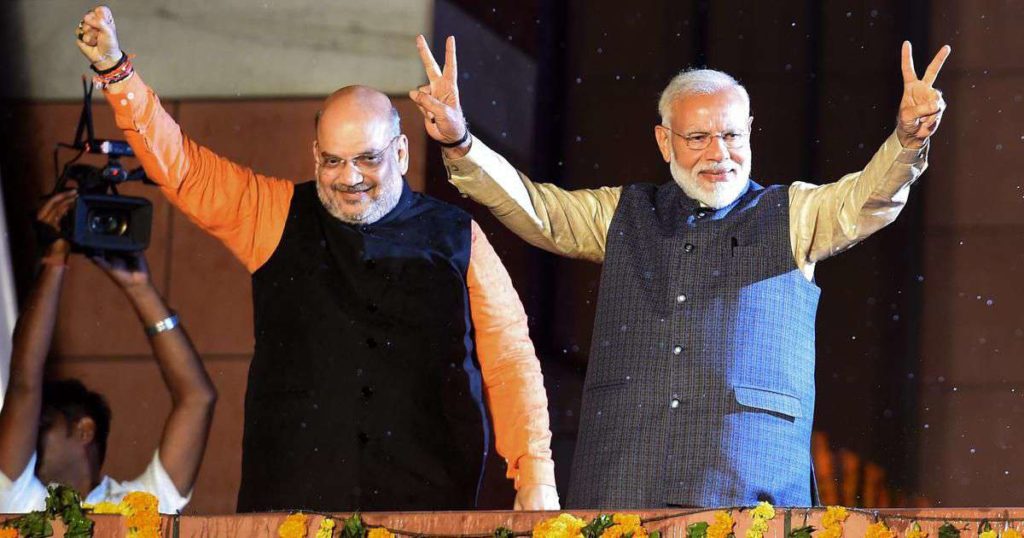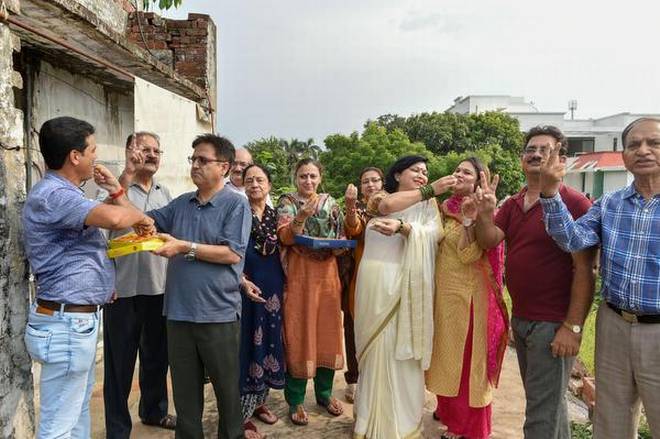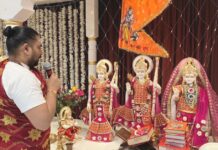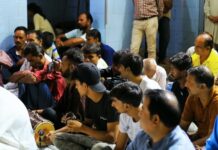India Post News Service
Indians in the US have wholeheartedly welcomed the Narendra Modi government’s decisive action of revoking Articles 370 and 35A of the Constitution and bifurcating Jammu and Kashmir into two union territories – Jammu and Kashmir with a legislature and Ladakh without a legislature.
“As a secular pluralistic democracy, it is vital that all citizens of India enjoy the same rights and are subject to the same laws, regardless of where in the country they reside,” said Samir Kalra, managing director of the Hindu American Foundation (HAF), in a statement.
“We believe that the abrogation of Articles 370 and 35A, which were only intended as temporary provisions, is an important step in this direction,” he said.
“It will help better integrate the residents of Jammu, Kashmir, and Ladakh into the rest of India and apply one set of equal laws across the country.”
Kalra said that this move by the Indian government will help create conditions for the full rehabilitation and resettlement of the Kashmiri Pandits in the Kashmir Valley and urged the US government to support this.
“We urge the US to fully support India’s internal sovereign decisions on Kashmir and to continue to exert pressure on Pakistan to end its support of cross-border terrorism, so the Kashmir conflict can be resolved once and for all,” he said.
The Indo-American Kashmir Forum (IAKF), a US-based organisation representing the Kashmiri Pandit community, has also welcomed the Indian government’s decision.
“This change is an extremely welcome development for a number of reasons,” Vijay K. Sazawal, International Coordinator of the IAKF, said in a statement.
Sazawal said that the “status quo in the State, under the Article 370 dispensation, had failed utterly in bringing peace, security, development and human rights to its people, especially religious minorities in the Kashmir Valley”.
“But the biggest reason why our organization, and our sister organizations, the Indo-European Kashmir Forum (IEKF) based in London and Geneva, and the Indo-Canadian Kashmir Forum (ICKF) based in Ottawa, support the decision by the government of India is because finally Kashmiri minorities, particularly the Kashmiri Pandits, will receive justice and be able to reclaim their ancestral lands from where they were driven out in 1989-1990,” he said.
Sazawal said that Jammu and Kashmir “had fallen into a rut of dynastic rule led by a few prominent Muslim families that had looted the State of its wealth which led the Transparency International (TI) to label the State as the most corrupt in India”.
“In fact, a classified cable (leaked by Wikileaks) from (then US) Ambassador (to India) David Mulford to the US State Department in February 2006 called Kashmir a ‘money game’ and stated that, ‘Kashmir Politics is as filthy as Dal Lake (in Jammu and Kashmir’s capital Srinagar),” he said.
He further said that the ethnic cleansing of Kashmiri Hindus from Kashmir valley “is a disgraceful chapter in the history of free India, and it happened because all successive democratically elected Kashmiri Muslim politicians in Jammu and Kashmir took an umbrage under the Article 370 to resist any central government efforts to address the plight and suffering of Kashmiri Pandits and other minorities in the state and reverse their ethnic cleansing”.
“Pandits have been living as refugees in their own country for the last 30 years,” he said.
“The move by the Indian government will also improve the security situation with respect to cross-border terrorism and bring peace, harmony and stability in Jammu-Kashmir, now a new union territory of India.”
Chandru Bhambra, president and coordinator of the Northern California chapter of the Overseas Friends of BJP (OFBJP) said that the whole Indian community in India and all over the world was thinking of doing something about Article 370.
“A lot of bad things were happening due to Article 370,” Bhambra said in a statement.
“Nobody other than Kashmiris could buy property, there was a stagnant population there, economic growth is also not there,” he said
“In the same country, being a part of India, how is it that you cannot change the demographics, how can you have two flags? It was unjustified.”
Asked about the repercussions on the local Kashmiri population, Bhambra said: “Though they may not realize it right now, in a few years, they will say that it is the best thing to have happened to the Kashmir Valley.”
Arun Bhatnagar, a former colonel in the Indian Army who now lives in the Bay Area, said that he was “thrilled to hear the greatest news of the millennium”
“I had the opportunity to serve for several years in all vulnerable sections in Jammu and Kashmir such as Uri, Poonch, Kishtwad, Anantnag, Pulwara, Baramulla and the Valley,” Bhatnagar said
Stating that his eyes are filled with tears whenever he remembers carrying the bodies of the brave Indian soldiers, he said: “I had never imagined that in my life I would be able to see this great day and my dreams come true. I salute the Indian Army, our nation and our great leader Modiji and his team.”
Diya (name changed), a Kashmiri Pandit who grew up in the Kashmir valley and who now lives and works in Connecticut, said: “I woke up to a historic decision by the government of India to revoke Article 370, something that I had always hoped for, but never expected to come to fruition. Definitely not something that my 94 year old grandfather was expecting to see during his lifetime. Kudos to the Modi government for this brave and bold decision.”
Anita Srivastava, a non-Kashmiri and founder and CEO of Happiness Factors, said that she was “very happy and excited that someone had the guts to make this decision”.
Asked about the long-term impact of the decision on Jammu and Kashmr, she said: “This will attract a lot of investors and businesses from across India and people will be able to buy land. This, in turn, will improve the economy and give new hope to people.”







